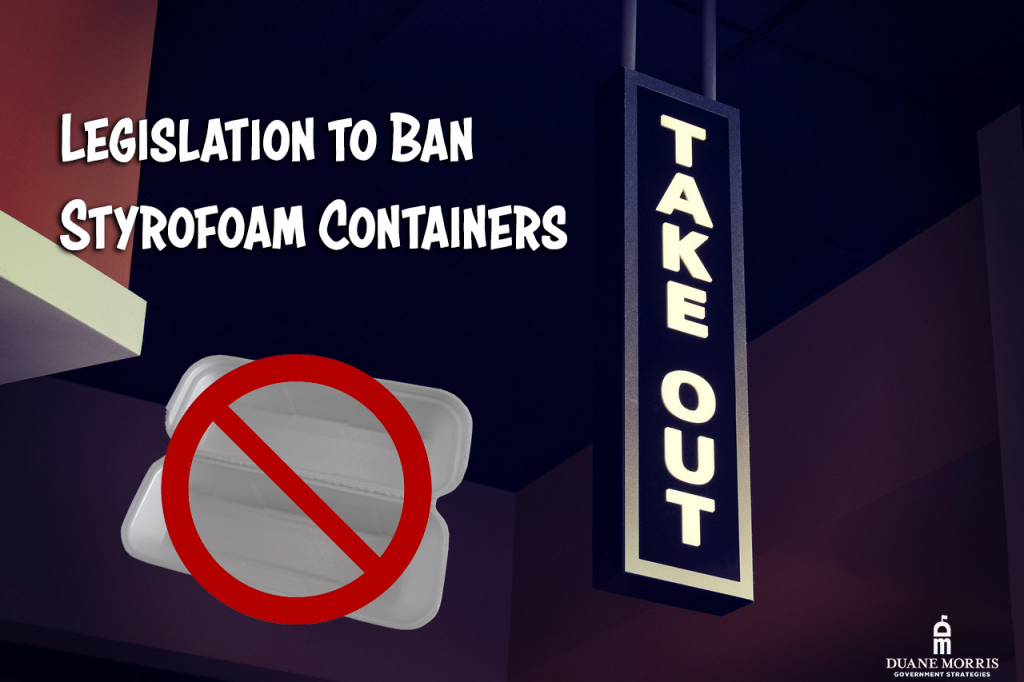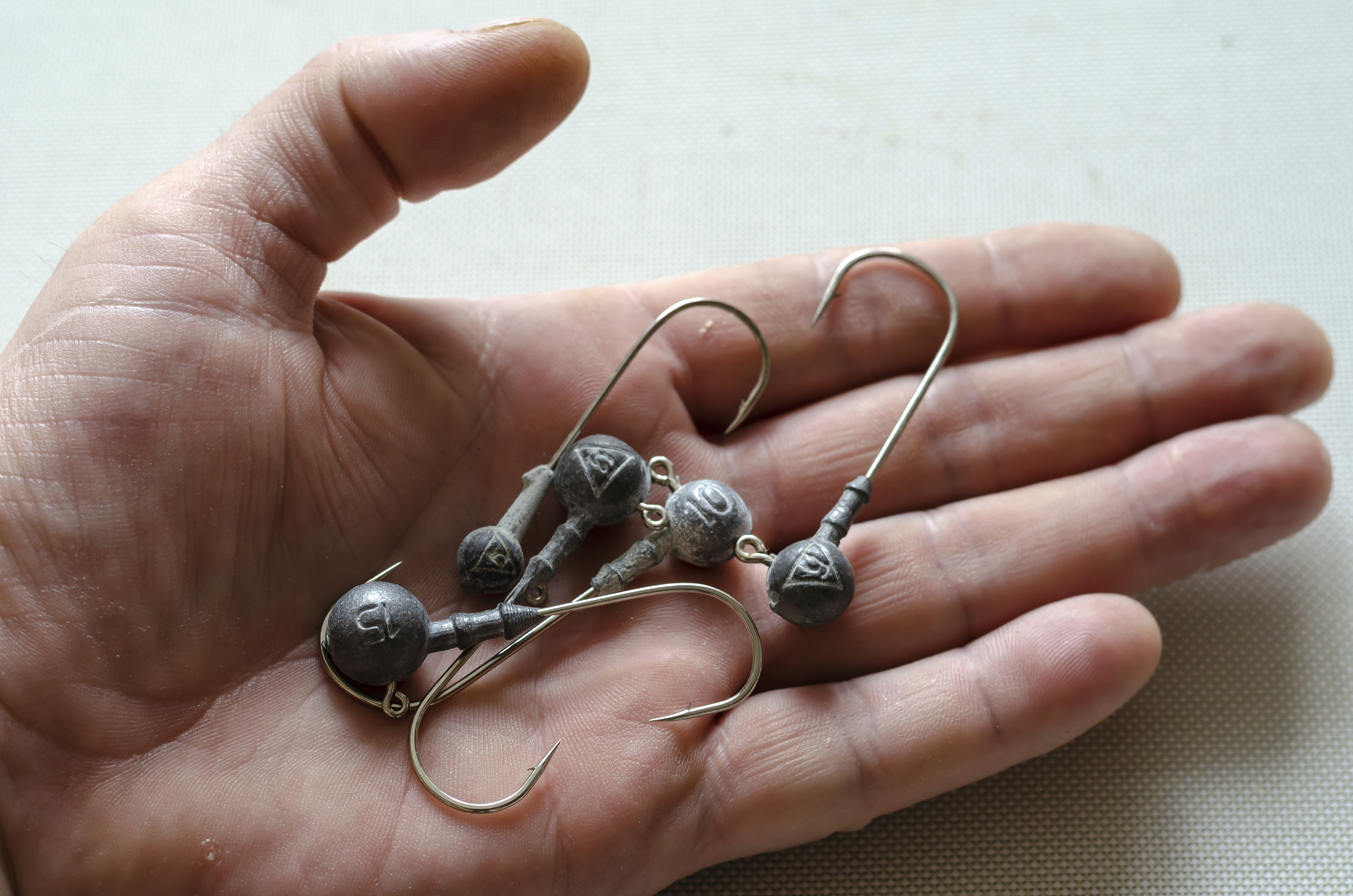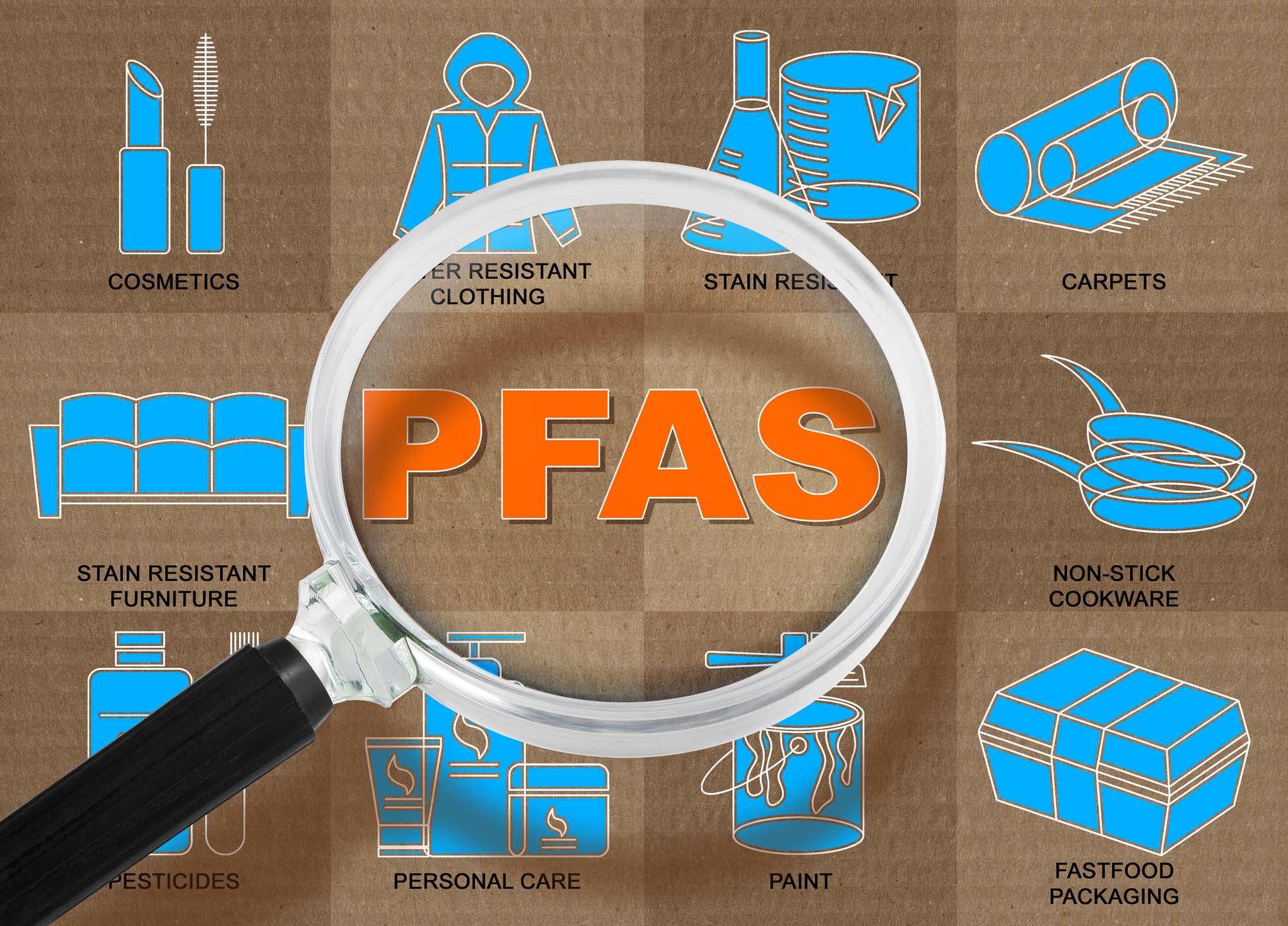
If you have ever ordered take-out from a restaurant or other food establishment, your food has likely come in a Styrofoam – or polystyrene – food service container. However, many consumers are surprised to discover that such Styrofoam and other plastic carryout containers that restaurants and other businesses provide cannot be recycled and end up in landfills. In place of more complex solutions to excessive waste, such as extended producer responsibility, states have opted for more straightforward solutions; many have banned numerous forms of single-use plastics (i.e., bags, straws, polystyrene), including via Styrofoam container ban legislation. Maine was the first state to enact such legislation in 2019, something we covered previously.
However, the COVID-19 pandemic has forced restaurants and other food establishments to focus on carryout service instead of traditional dine-in service.
One survey in the fall last year by the National Restaurant Association found that 67% of 3,500 operators added curbside take-out since March, 27% added third-party delivery, 17% added in-house delivery, and three percent added drive-thru services. With a focus in the foodservice industry on carryout and delivery services, how will that affect state lawmakers’ efforts to enact Styrofoam container ban legislation?
Virginia 2021 Legislation to Ban Styrofoam Containers
The Virginia legislature passed HB 1902 earlier this year, and Governor Ralph Northam signed the bill on March 18. The legislation prohibits a food vendor’s dispensing of prepared food to a customer in a single-use expanded polystyrene food service container.
The bill offers a phased-approach for implementation. Beginning July 1, 2023, no food vendor that is a restaurant or similar retail food establishment and is part of a chain with 20 or more locations shall dispense prepared food to a customer in an expanded polystyrene food service container. Beginning July 1, 2025, no food vendor of any type shall dispense prepared food to a customer in an expanded polystyrene food service container.
The legislation offers exemptions. Any food vendor may request from the locality where they are located an exemption, which may be granted if the vendor shows complying would result in an undue economic hardship.
HB 1902 defines an “expanded polystyrene food service container” as a rigid single-use container made primarily of expanded polystyrene and used in the restaurant and foodservice industry to serve or transport prepared ready-to-consume food or beverages. Such containers include plates, cups, bowls, trays, and hinged containers. However, they do not include packaging for unprepared foods or packaging, such as a cooler, used in food shipment.
Violations of the new law shall result in a civil penalty of no more than $50 for each day of a violation. All fines because of a civil action brought by the state’s Attorney General will go towards the Litter Control and Recycling Fund. Fines resulting from a civil action brought by a locality shall go to the locality.
Connecticut 2021 Legislation to Ban Styrofoam Containers and Single-Use Plastic Straws
Connecticut’s House Environment Committee passed a bill, H.B. 6502, on March 12 to phase out the use of particular polystyrene trays and food containers and prohibit the distribution of single-use plastic straws.
H.B. 6502 states that no later than July 1, 2022, each school district, regional school district, regional vocational school, and constituent unit of higher education shall develop a plan for discontinuing the use of trays made from expanded polystyrene. Further, each plan would require stopping the use of polystyrene trays by July 1, 2023.
The bill defines “expanded polystyrene” as blown polystyrene and expanded and extruded foams that are thermoplastic petrochemical materials utilizing a styrene monomer and processed by many techniques, including fusion of polymer spheres, injection molding, foam molding, and extrusion-blown molding.
Additionally, under the proposed legislation, no owner or operator of a full-service restaurant shall provide, effective January 1, 2022, a single-use plastic straw to a consumer unless the consumer requests one but may provide a single-use plastic straw to any person with a disability. A “full-service restaurant” is defined as any establishment where food may be consumed on-premises. A “single-use plastic straw” is defined as a single-use, disposable tube made predominantly from plastic derived from either petroleum or a biologically based polymer. Such straws do not include those made from non-plastic materials, such as paper, pasta, sugar cane, wood, metal, or bamboo.
Pennsylvania 2021 Polystyrene Ban Legislation
In early March, state lawmakers in Pennsylvania introduced House Bill 783, Styrofoam container ban legislation. The bill’s sponsor noted the legislation intends to reduce the adverse environmental impact of polystyrene food containers. Similar legislation has been introduced in the past few legislative sessions by lawmakers.
HB 783 defines a “polystyrene food service container) as a single-use polystyrene foam foodservice container, including a cup, bowl, plate, and clamshell-style container in addition to a foam cooler that is not encased in another material, and a single-use polystyrene solid plastic food container, including a cup, plate, clamshell-style container, cutlery, straw and cup lid.
Under the proposed legislation, a food establishment would be prohibited from dispensing prepared food in or on a polystyrene food service container and selling, giving, or providing eating utensils or straws composed of polystyrene. Additionally, a retailer would be prohibited from selling, giving, or providing a polystyrene food service container except for meat trays, egg cartons, or packing materials.
The bill further would allow the Department of Health to impose civil penalties for violating the law. A first violation may result in a $500 fine, a second violation a $1,000 fine, and a third or subsequent violation a $2,000 fine.
A competing bill was introduced last summer to prohibit local bans on single-use containers during the COVID-19 pandemic. Senate Bill 1159 would have stipulated the General Assembly or a local governmental body or agency may not enact or enforce a law, rule, regulation, or ordinance imposing a tax on or relating to the use, disposition, sale, prohibition, or restriction of single-use plastics, auxiliary containers, wrappings or polystyrene containers, until December 31, 2021, or 12 months after the termination of the disaster emergency issued by Governor Tom Wolf on March 6, 2020.
Colorado 2020 Review and 2021 Outlook
After failing to advance Styrofoam container ban legislation last session, recent reports from February indicate lawmakers could attempt again to ban both single-use plastic bags and foam packaging at stores and restaurants. Democratic lawmakers hope to take this push further by removing the state law, which prevents local governments from banning or restricting certain packaging materials.
Under current Colorado law, local governments are prohibited from requiring or banning the use or sale of specific types of plastic materials or products. HB 21-1162 would repeal the current prohibition, effective July 1, 2023. The bill would also prohibit stores and retail food establishments, effective September 1, 2022, from providing single-use plastic carryout bags to customers. Between September 1, 2021, and September 1, 2022, a store may charge $0.10 for a recycled paper carryout bag or a single-use plastic carryout bag at the point of sale. After that timeframe, a store may only provide a recycled paper carryout bag to a customer. The $0.10 per bag fee still would apply, but the fee could be higher if imposed by a municipality or county.
Maryland Law Went Into Effect Last Year
A Maryland state law went into effect October 1 last year to prohibit restaurants, schools, and other foodservice outlets from using polystyrene containers. House Bill 109 passed the legislature in the 2019 legislative session and was supposed to go into effect July 1, 2020, but was delayed until October due to the pandemic.
Under the bill, a person may not sell or offer for sale an expanded polystyrene foodservice product, and a food service business or school may not sell or provide food or beverages in an expanded polystyrene foodservice product.
House Bill 109 defines “expanded polystyrene” as blown polystyrene and expanded and exuded foams that are thermoplastic petrochemical materials using a styrene monomer and processed by several techniques. “Expanded polystyrene food service product” is further defined as a product made of expanded polystyrene used for selling or providing food or beverages and is intended to be used once for eating or drinking or generally recognized by the public as an item to be discarded after a single-use. As defined under the bill, such products include food containers, plates, hot and cold beverage cups, trays, and cartons for eggs or other food.
Products the bill does not apply to include food or beverages that have been packaged in expanded polystyrene containers before receipt by a food service business, a product made of expanded polystyrene that is used for packaging raw, uncooked, or butchered meat, fish, poultry, or seafood, or non-foam polystyrene foodservice products.
The Maryland Department of the Environment may grant a waiver to a food service business or school for a period of up to one year if the Department determines compliance with the new law would present an undue hardship or practical difficulty.
Latest News
Photo credit: iStock.com/Mikhail Dmitriev State lawmakers have taken legislative action to protect wildlife, including birds such as loons and swans, from lead poisoning. We have seen states pass laws banning lead sinkers or painted lead [...]
Photo credit: iStock.com/krblokhin Solar energy deployment has continued to increase, but the spread of new projects is not comprehensive. The National Renewable Energy estimates that 42% of households cannot access behind-the-meter solar. To address the [...]
Photo credit: iStock.com/Francesco Scatena Recent trends across the country have seen several states introducing bills to ban certain chemicals, particularly perfluoroalkyl and polyfluoroalkyl substances (PFAS), in consumer products. According to the EPA, PFAS are persistent [...]
Photo credit: iStock.com/hrui States have grappled with addressing climate change and transitioning toward sustainable energy sources. A critical component of these efforts lies in implementing Renewable Energy Standards, or Renewable Portfolio Standards, which aim to [...]






Stay In Touch